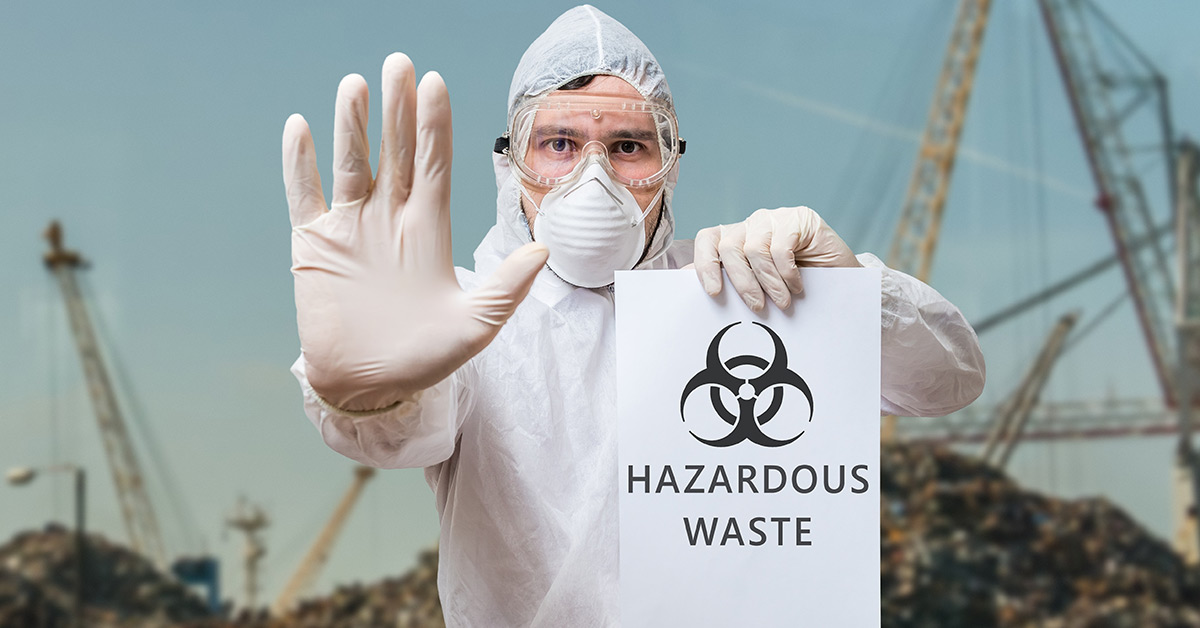Navigating Hazardous Waste Regulations: A Comprehensive Guide for Businesses from donike's blog
Hazardous waste regulations play a crucial role in protecting our environment and public health. For businesses that produce hazardous waste, understanding and complying with these regulations is essential to avoid hefty fines and legal repercussions. This comprehensive guide will help you navigate hazardous waste regulations, ensuring your business remains compliant and environmentally responsible.

What Are Hazardous Waste Regulations?
Hazardous waste regulations are laws and guidelines that govern the management, transportation, treatment, and disposal of hazardous waste. These regulations are designed to minimize the risk of harm to humans and the environment from the improper handling of hazardous materials. In the United States, the Environmental Protection Agency (EPA) oversees the enforcement of hazardous waste regulations under the Resource Conservation and Recovery Act (RCRA).
Identifying Hazardous Waste
The first step in navigating hazardous waste regulations is identifying whether your business produces hazardous waste. Hazardous waste is any material that is ignitable, corrosive, reactive, or toxic. Common examples include:
Chemical solvents
Industrial cleaning agents
Certain types of batteries
Pesticides
Electronic waste
Proper identification and classification of hazardous waste are critical, as it determines how the waste must be handled and disposed of.
Key Components of Hazardous Waste Regulations
Generation and Storage: Businesses must follow specific guidelines for the safe generation and temporary storage of hazardous waste. This includes using appropriate containers, labeling waste accurately, and implementing spill prevention measures.
Transportation: When hazardous waste needs to be transported, businesses must comply with Department of Transportation (DOT) regulations. This includes using certified carriers and ensuring proper documentation and labeling during transit.
Treatment and Disposal: Hazardous waste must be treated or disposed of at facilities authorized by the EPA. Treatment processes reduce the toxicity of the waste, while disposal involves safely containing the waste in landfills or incineration.
Recordkeeping and Reporting: Accurate recordkeeping is essential for compliance with hazardous waste regulations. Businesses must maintain detailed records of the amount and type of hazardous waste generated, how it is stored, transported, treated, and disposed of. Regular reporting to the EPA is also required.
Steps to Ensure Compliance
Conduct a Waste Audit: Perform a thorough audit of your waste streams to identify and classify hazardous waste. This will help you understand the types and quantities of hazardous waste your business generates.
Develop a Hazardous Waste Management Plan: Create a comprehensive plan that outlines procedures for handling, storing, transporting, and disposing of hazardous waste. Ensure all employees are trained on these procedures.
Use Proper Containers and Labeling: Store hazardous waste in appropriate containers that are compatible with the waste type. Clearly label all containers with the contents and relevant hazard warnings.
Implement Spill Prevention Measures: Establish protocols for preventing and responding to spills or leaks. This includes having spill kits on hand and training employees on emergency procedures.
Choose Certified Transporters and Disposal Facilities: Work with transporters and disposal facilities that are certified and authorized to handle hazardous waste. Ensure they comply with all relevant regulations.
Maintain Accurate Records: Keep detailed records of all hazardous waste activities, including generation, storage, transportation, treatment, and disposal. Regularly review these records to ensure compliance.
Stay Informed About Regulatory Changes: Hazardous waste regulations can change frequently. Stay informed about updates to ensure your business remains compliant. Subscribe to regulatory newsletters, attend industry conferences, and consult with environmental compliance experts.
The Importance of Compliance
Complying with hazardous waste regulations is not only a legal obligation but also an ethical responsibility. Proper management of hazardous waste protects your employees, the community, and the environment. Additionally, non-compliance can result in severe penalties, including fines and legal action, which can harm your business’s reputation and financial stability.
Navigating hazardous waste regulations can be complex, but it is essential for businesses that generate hazardous waste. By understanding the key components of these regulations and implementing best practices for compliance, you can ensure your business operates safely and responsibly. Regular audits, employee training, and staying informed about regulatory changes are crucial steps in maintaining compliance and protecting our environment.

The Wall